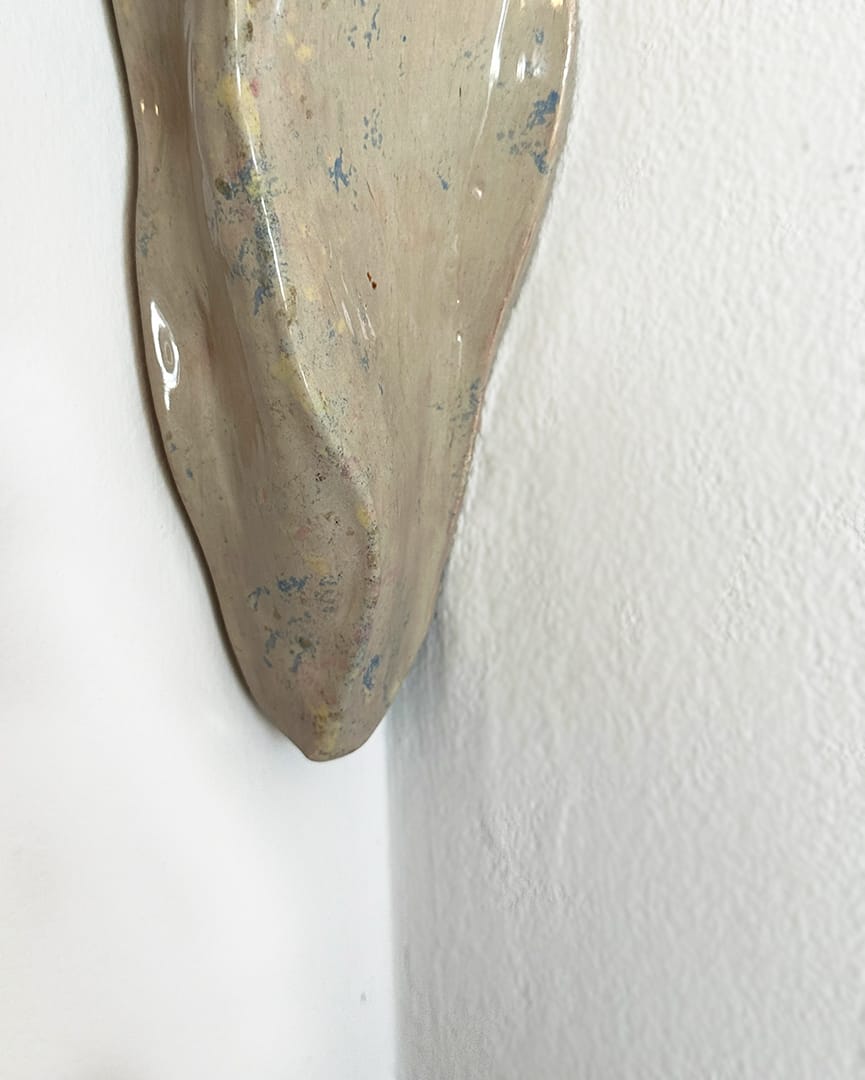
Anaís Tudón
Un rincón, un enredo
Exhibition
-> Sep 12 2024 – Oct 20 2024
Centro Cultural Plaza Fátima will exhibit Un rincón, un enredo, presenting the most recent artwork by Anaís Tudón, which is part of the new cycle of exhibitions, Adherir a la idea.
Mourning the loss of a loved one is a complex process that not only affects the emotional level, but can also deeply alter family dynamics. When a person dies, what is initially perceived as a space for mourning and reflection can become fertile ground for the rise of tensions and conflicts, especially when material interests come into play. This art project uses ceramics to explore such issues, drawing an analogy between the mold that develops in homes and the emotional corrosion that can arise in the context of loss.
By choosing ceramics as the medium for this project, it echoes a long tradition of materiality that transforms the everyday into the meaningful. Ceramics become a tangible representation of departed loved ones, transformed into objects of material value through estate transactions and inheritances. Thus, ceramic pieces act as reminders of how often the most complex aspects of mourning are reduced to material issues and, consequently, generate conflicts of interest among surviving family members.
The design and placement of the pieces within the space are carefully thought in order to reflect the insidious growth of mold and mildew. Placed in the corners of a building, between walls or between the wall and the roof, these pieces evoke cracks and leaks that may go unnoticed until they cause significant damage. Although the arrangement of the pieces in the room may seem deserted at first glance, it is a deliberate choice that intensifies the experience of the project. This distribution confronts an apparent emptiness that not only challenges the perception of the exhibition, but also evokes a sense of disappointment or disillusionment. However, this sense of emptiness is not a mere absence of content, but a reflection on the depth of grief and the tensions it entails.
— Anaís Tudón